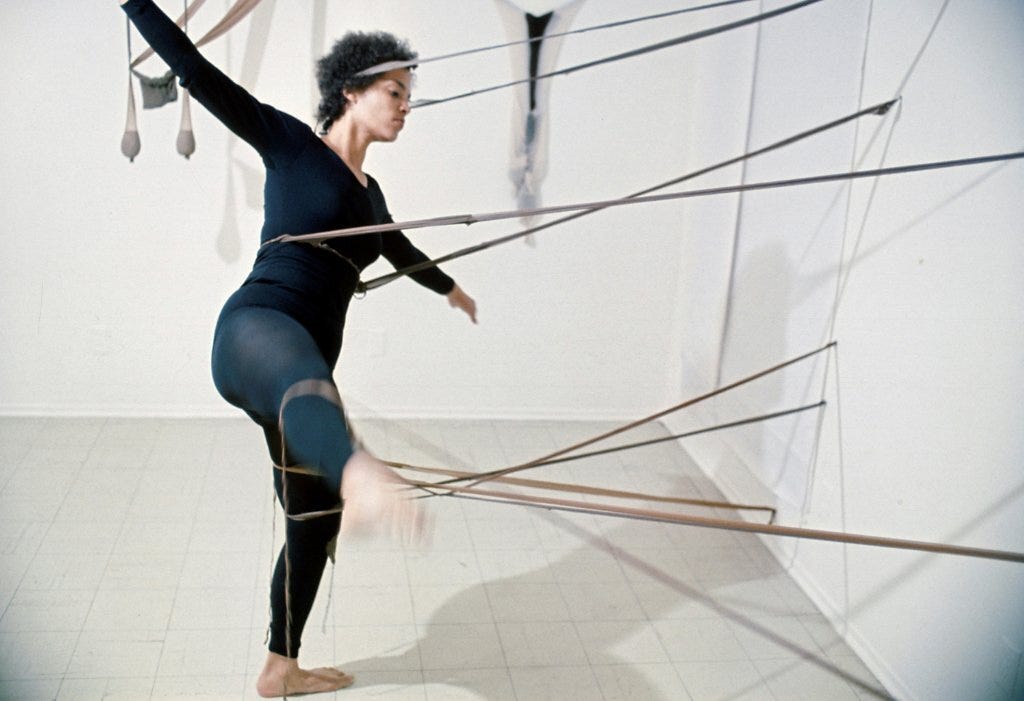📚Black To School: Issue #24
Black Is Innovation 💡: First Powering Minds and Homes then Computing and CleanTech

For anyone new to Black To School, we explore the history and contributions of Africans and the African diaspora to global society. Our goal is to learn from these stories, draw inspiration, and make a positive change in our own lives, homes, and communities. The “Why?” that powers our mission is simple. “Our ancestors invented the table that the world now sits at. It’s time to not just claim our seat, but to set the agenda.”
If you received a forwarded issue, you can subscribe to Black To School here.
💡 Welcome to Issue #24!
One thing that’s an integral part of the Black experience is innovation. We’ve seen it time and time again throughout generations. We recognize needs, create solutions, and adapt. This month, we’ll take a trip through time and learn about the cognitive revolution, Black inventors, and the birthplace of sustainability!
Black Is Innovation:
Innovation is more than a notion. Beyond the idea, it requires an ability to design, develop, and document. And that’s all before one ever gets anything manufactured, sold, and in the hands of the people who can use and benefit from it. Patent laws were created in the United States in 1790 to promote the spirit of innovation by incentivizing inventors. In short, patents, when granted, give inventors exclusivity to make money from their ideas for 14 to 20 years.
There are high barriers to entry in the patent process. As of 2019, 58% of all patent applications were approved, which has been steady since inception. Despite initially being barred from participating, Black inventors have always been prolific in contributing to the innovations that built America and established its leadership position in the Industrial era. Between 1870 and 1940, with 50,000 total patents, Black inventors held the largest block of patent awards over all other immigrant groups in America, with just two exceptions.
What’s The Story? These Are The Facts.
The Cognitive Revolution Ignited in Africa.
In present-day South Africa, the first verifiable instance of man-made (or man-managed) fires was in the Wonderwerk cave approximately 1 million years ago. Due to the enclosed space and the type of tools found, experts believe it was a campfire started by our early human relatives, Homo erectus. Although Homo erectus were likely the first ancient humans to cook, they went extinct 200,000 years ago. Unlike Neanderthals, Homo sapiens are thought to have independently learned how to create and tame fire. There are several theories about what our early African ancestors used fire for, ranging from cooking meat and plants; protecting against predators, and making solid tools and weapons to warding off insects when sleeping; staying warm; clearing hard to pass areas of land; illuminating public spaces for social gatherings; and even sculpting pottery.
The most significant and enduring impact of controlling fire has been the evolution of the human mind in both size and function. Our brains grew as cooking reduced the energy required to chew and digest food, and our working memory and problem-solving skills improved thanks to a better quality of sleep (with predators now kept at bay by fire). The power to control fire contributed to the beginning of the cognitive revolution. It was an age when our African ancestors communicated and collaborated closely to explore, create, and survive. This period in human history ultimately placed Homo sapiens at the top of the food chain and enabled us to outcompete and survive all of our other human relatives.
Black Inventions Redefined The Experience Of Home.
Now, let’s move forward in time. In 1821, Thomas Jennings was the first Black person to receive a patent award (for his innovative dry cleaning process). He was certainly not the first Black inventor, but he was the first to have his invention formally recognized and protected under law. It’s important to note that early Black inventors came from all walks of life: enslaved and free, degreed and self-taught, those who drew from African traditions/customs, and those who responded to the demands of domestic service. Whether they were wealthy or had limited means, women or men, young or old, married or single/widowed, what united them was their spark of inspiration and their boundless talent. These early inventors saw a need, imagined a solution, and then brought ideas to life.
The innovations created by Black inventors have been all over the map. They range from railroad transportation improvements to life-saving medical equipment and procedures to more efficient agricultural management systems and transformation of all things related to the home. Black inventors have contributed so much to improving home life. Their residential innovations can be organized into five broad categories, including totally new or enhanced processes and designs: (1) Home Maintenance, (2) Home Furniture & Equipment, (3) Communication, Entertainment, & Art, (4) Food & Cooking, and (5) Personal Attire & Grooming.
Daily Life Runs on Black Computing Power…
Before IBM released the first personal computer in 1981, there had been a long, storied list of Black inventors who invested time, energy, and talent into advancing computer hardware, software, and networking. We want to showcase and celebrate them by reflecting on how their work now benefits us daily. Below is a series of ‘Sample To-Do List’ items. We demonstrate how the technology invented and enhanced by our community has become an integral part of modern life and work — it’s truly humbling and inspiring.
Black Sustainability Was Right From The Start!
In 2019, humans used 160,000 terawatt-hours (TWh) of energy, equivalent to 1.6 quadrillion 100-Watt light bulbs that are simultaneously on. Although clean technology is not yet a primary source of power, it is scaling with more than $300 Billion in investments each year and 30,000+ granted patents. Since 2001, cleantech has been the fastest-growing patent category in the U.S. What’s exciting about this type of technology, in particular, is that it is firmly rooted in systems for harnessing and storing energy that was invented and applied by our early ancestors in Africa.
In many cases, the renewable technologies used in ancient Africa were not claimed as inventions until outsiders from Italy and Greece were exposed to them. These merchants, scholars, explorers, missionaries, and soldiers studied and copied indigenous African scientific methods and tools. Upon returning home, they (and the local ruling elite) positioned these practices and solutions as Greek and Roman discoveries without fully crediting the Black philosophers, scholars, scientists, architects, engineers, artisans, and technicians who were the sources of knowledge and inspiration.
Ancient Egypt, particularly, and North Africa, as a region, are among the most studied and well-referenced sites. The earliest instances of clean technology, specifically renewable energy, are used and managed in society. Recognizing that many of these innovations also were in existence (and in some cases, originated in) other parts of Africa, below is a review (from surviving sources) of how, where, and when these sustainable solutions first made their appearance.

What’s New? We Keep Building the Future.
With the “Idea” and “Creator Economy” in full swing, the inventors and communities that inspire inventions are gaining more visibility (and a voice) as the enterprises, investors, and platforms that bring them to market give credit where it is due. And yet, the innovation ecosystem, itself, is ripe for reinvention, starting with relaxing the persistent, bright line that it promotes between shareholders and stakeholders. Now we see the world circling back to conversations about what ownership is - from music (sharing royalties earned by artists) to decentralized finance. At the center of this market transformation, we stand both the artisan-scientist making instruments and computers on and off the continent and citizen-philosopher, helping to shift the paradigm of our current “zero-sum” economic system.
🛠️ The Black To School Toolkit
Still curious? Dig deeper on your own, grow with your family, and learn how you can impact change in your own backyard:
For You: Click here to watch this 13-minute overview video on how we tamed fire by PBS. Want more? Read the book Black Pioneers by Louis Haber and Black Inventors by Keith C. Holmes for great stories about how Black inventors changed our lives forever.
For Family: Watch this video (all ages) about Black inventions and inventors that revolutionized our homes. Read this book with your kids (ages 5 to 12), Have You Thanked an Inventor Today? Are you all in? Learn about how your kids can get involved in Black Girls Code (ages 7 to 17) and Black Boys Code (ages 8 to 17).
For Community: Attend AfroTech’s annual conference to network with Black techies from around the world who are looking to hire, collaborate with, and invest in the next generation. Are you game for an Eco-vacation? Enjoy one of these ten breathtaking sustainable safari options on the continent.





